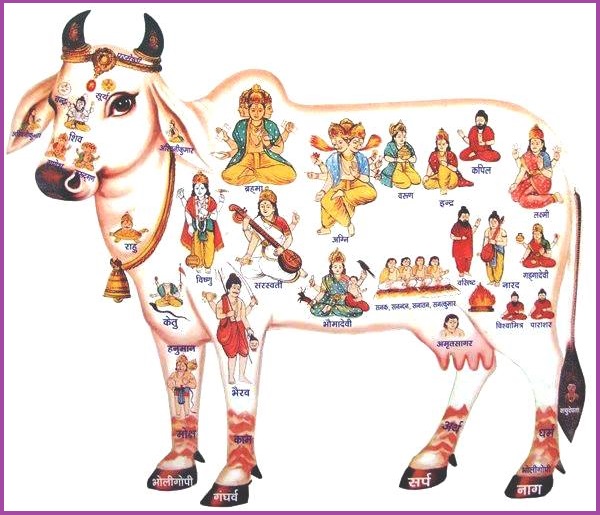
The Holy Cow
By recognizing the divinity in animals, Indian traditions give them an equal position unsurpassed by any other tradition. Many animal species have been traditionally protected and continue to be conserved in many parts of our country.
Animals have been traditionally considered sacred for the following reasons:
- Some animals are worshipped as deities themselves. For example, Ganesha, the elephant-headed God, and Hanuman, the monkey God.
- Many animals are considered as vehicles ( vahanas ) of the deities and hence developed sanctity. For example, Garuda (Brahminy Kite), the vahana of Lord Vishnu, and Nandi (Bull), the vehicle of Lord Shiva.
- Animals have also been regarded as the abode (either temporary or permanent) of the souls of the dead. Sometimes, even as the actual soul of the dead. For example, Crow and Dog. The sanctity of an animal may also be based on their economic value. For example, the water buffalo is venerated by Todas – a small pastoral vegetarian tribe of the Nilgiris – who rely on the animal for milk.
By deifying animals, Indian culture recognised that the same divine soul that lived in humans also lived in animals. Further, the divinity protected the animal from exploitation, hunting and cruelty. It was a uniquely Indian way of providing protection to animals and birds.
List of Sacred Animals


